Want social change? A deeper understanding could be key, study suggests
A new UK study suggests a deeper understanding of social change could help close the gap between challenges and actions, especially on issues like climate change.
Published online in the Journal of Community Psychology, the study, led by Dr Miles Thompson at the University of the West of England (UWE Bristol) and Dr Ben Rosser at Liverpool John Moores University, found:
- There are different types of social change.
- They are happening all around.
- They are not all are seen as positive.
“Expanding the way we think and talk about social change may mean we can act differently in the future as we try and tackle the critical challenges of our time,” said Dr Miles Thompson.
“The results of this research emphasise that social changes – positive, negative and neutral – are happening all around us. Communities continue to fight for rights and equity, and at the same time, social changes are also happening in terms of the impact of technology, changes to wider social behaviour, as well as larger national or global political events. By moving beyond blanket definitions of social change, we can sharpen our frameworks and understanding of the unprecedented social changes we need now to tackle the climate and wider ecological emergencies.”
The study asked participants to both produce and later respond to self-generated examples of social change in an effort to gain a deeper understanding of what social changes are and what they mean.
The research was conducted in two stages:
- What do participants feel are significant examples of social change?
- How do they feel towards these examples in terms of positive or negative responses?
In stage one, participants generated their own examples of social changes in answer to the prompt: ‘list as many concrete examples of significant social change from the past two hundred years that you can think of’. Nearly 200 participants provided examples of social change which were reduced to 52 individual statements. The researchers arranged the examples under four overarching themes:
- Legal Protections, Rights, and Equality: moves towards equality and equity within society. E.g.: the abolition of slavery; the legalisation of same sex marriage.
- Technological Impacts: the advent and widespread adoption of technologies. E.g.: the increased ease of global travel for some; the invention and increasing use of social media.
- Global and Domestic Political Events and Governance: broader political and social changes impacting nationally and internationally. E.g.: the decline of influence of the British Empire; the UK voting to leave the European Union.
- Societal Beliefs and Behaviour: changes in mainstream thinking and behaving at societal or community level. E.g.: a decline in religious belief; less cohesive communities.
In stage two, a further 200 participants rated each of the examples in terms of whether they were a significant social change, and whether they were positive, neutral or negative.
On average, participants felt that all 52 examples were significant social changes. However, not all were seen as positive. Averaging across the themes, ‘Legal protections, rights, and equality’ examples were seen as being highly positive. Examples from ‘Technological impacts’ and ‘Societal beliefs and behaviour’ examples were rated less positively – but still sat on the positive side of the scale. While examples from ‘Global and domestic political events and governance’ were generally rated the least positively of all.
While academics and activists may both talk about the need for social change and aspire to bring it about, these aspirations can sometimes be framed in very general terms. The authors hope the results from this study offer a new framework to think about social change in a more nuanced way: a tool for those wanting to bring about the positive social changes of the future.
In terms of possible next steps, each of the social change examples from this study provides a potential case study to understand more about how each came about.
“The social changes of the past can provide blueprints to adapt and reapply now and in the future,” said Dr Miles Thompson. “Knowing more about the different events that produced past changes both individually and across themes, may increase our ability to anticipate and mitigate barriers to future change. This might be especially important in terms of helping to bring about the rapid transformations international organisations, like the Intergovernmental Panel on Climate Change, say are required from all of us in the face of climate change.”
YouTube video created by UWE Bristol New Wave Creative Agency with thanks to alumni Phoebe Ryall and Nathan Caffley.
Related news
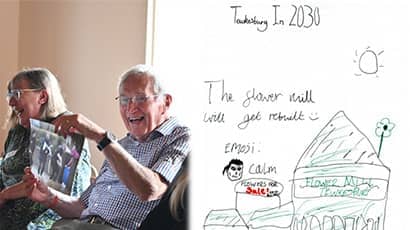
04 March 2026
Community play to give Tewkesbury residents a voice
A community‑led play exploring Tewkesbury’s history with the River Severn and future environmental challenges comes to The Roses Theatre on 18 March.

18 February 2026
Immersive theatrical reimagining of Moby Dick brings unique creative captioning to a live audience
An experimental theatre experience by UWE Bristol lecturer Sharon Clark and artist Jack Hardiker-Bresson uses creative captions for accessible storytelling.
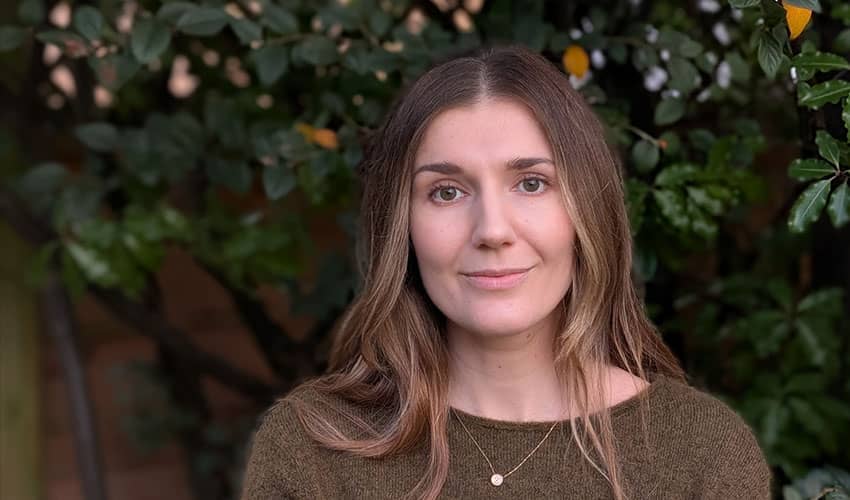
16 February 2026
UWE Bristol researchers awarded grant to explore impact of asset recovery on offenders
UWE Bristol academics have been awarded funding to explore of the impact of asset recovery on deterring offender behaviour and disrupting crime networks.

13 February 2026
New round of Scale up 4 Growth funding opens for SMEs
UWE Bristol has launched the next round of Scale up 4 Growth grant funding, designed to accelerate the growth of SMEs across the region.

10 February 2026
Work by UWE Bristol lecturer features in Government’s National Cancer Plan
Work by a UWE Bristol academic has been included in the Government’s National Cancer Plan.

23 January 2026
On-demand minibus services beneficial in rural areas but face financial challenges, trials suggest
Trials of ‘demand responsive transport’ minibus services boosted connectivity for people in rural and suburban areas, according to a new report produced by UWE Bristol researchers.
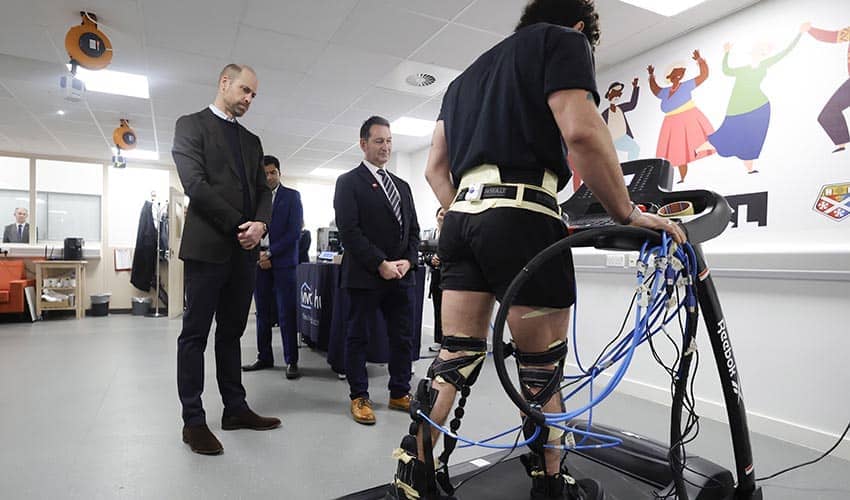
22 January 2026
Prince of Wales visits UWE Bristol to see pioneering robotic tech tackling societal health challenges
The Prince of Wales visited the Bristol Robotics Laboratory (BRL) at the University of the West of England’s (UWE Bristol) Frenchay campus today (22 January 2026) to learn about the pioneering robotic technologies being developed to help the ageing and disabled population maintain mental and physical wellbeing and remain independent for longer.
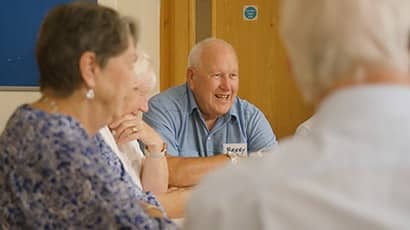
21 January 2026
Dementia support groups developed by professor adopted across globe
A programme started by a UWE Bristol academic to provide emotional and practical support for people with dementia is now being adopted around the world.

19 January 2026
UWE Bristol academic to help shape new national Art and Design curriculum for England
A UWE Bristol academic has been appointed by the Department for Education to draft a new national curriculum for Art and Design.

18 December 2025
UWE Bristol professor appointed National Institute for Health and Care Excellence CEO
Jonathan Benger CBE, Professor of Emergency Care at UWE Bristol, has been appointed as the new chief executive officer of the National Institute for Health and Care Excellence (NICE).

17 December 2025
Findings revealed from first UK study into experiences of mothers who are survivors of rape pregnancy
UWE Bristol academics have revealed the findings of the first UK-based study of the experiences of mothers who are survivors of rape pregnancy.

11 December 2025
Picture perfect: Graduate Chloe Barnes wins Sky Arts Portrait Artist of the Year 2025
Artist Chloe Barnes has won Sky Arts Portrait Artist of the Year 2025, earning a £10,000 commission from The Royal Society.
You may also be interested in

Media enquiries
Enquiries related to news releases and press and contacts for the media team.
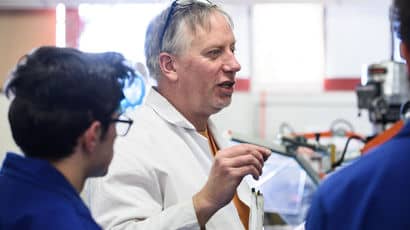
Find an expert
Media contacts are invited to check out the vast range of subjects where UWE Bristol can offer up expert commentary.






